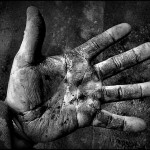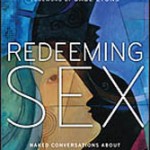I both resonated with the idea of systemic racism and at the same time resisted it. Why? It’s painful to admit that part of the reason for my success and relative stability (not all, but part) is that I am part of white-majority culture. It is painful to admit that such a thing as white-majority culture even exists. It means that I can’t pat myself on the back and take credit for everything that has come my way.
Yes, I lived in poverty, and I grew up for part of the time with a single mom. But you see, when people meet me in this white-majority culture, they perceive me differently than they might a black young man who grew up the same way. I had different opportunities. I was not perceived as threatening or treated that way at any point in time. I was able to get an education fairly easily, not only because of advantages that I had, but because of advantages my parents had and generations past had. Some of my success can be something I take some credit for, sure, but not all of it. A lot of it came to me because I had a leg up that others may not have had.
This is a shattering idea to confront. I truly believe this is the central reason why members of white majority culture refuse to see the truth of systemic racism. It’s shattering to realize that though it is not impossible to climb out of really desperate circumstances and cultures that are full of hopelessness, it’s extremely difficult and almost impossible. There is a verse in the Bible that says, “without vision, the people perish.” Oftentimes, for those in multi-generational poverty, for those who are part of disenfranchised races, for those who have suffered abuse, for those who are so hungry that their brains don’t even work as well for them as they could, for those who have lived in a sea of addiction and despair, for those who have rarely if ever seen someone rise out of their communities, there is no vision. There is no hope. If we can’t start with empathy for what that might be like, we are bound to pride.
And I was bound to pride for many years of my life. I was bound to taking the credit for all of my accomplishments.
But as I look back, I can see crossroads in my life. I can see places where if vision had not emerged from outside me and my circumstances, I would have been left in a really hopeless, self-destructive place. I feel as if I was rescued–by others, by God, by ideas–at certain crossroads moments in my life. I don’t know why everybody doesn’t experience this same rescue. But maybe part of the answer is that each of us are supposed to shine like lights in the darkness. Maybe each of us can help bring vision, hope, love–and not judgment–to someone who may be difficult to love. Maybe our individual crossroads moments are not there so that we can pat ourselves on the back. Maybe they are meant to motivate us to get out there and love somebody who is hurting, even if their experience is different from us. Maybe we can love somebody who is in tough circumstances with no demand for a certain outcome. Maybe we can meet them right where they are. Maybe we can be the hands and feet of a loving God who aches for a hurting world. A God who rescued us not so we could be prideful, but so that we could become more instruments of mercy.












